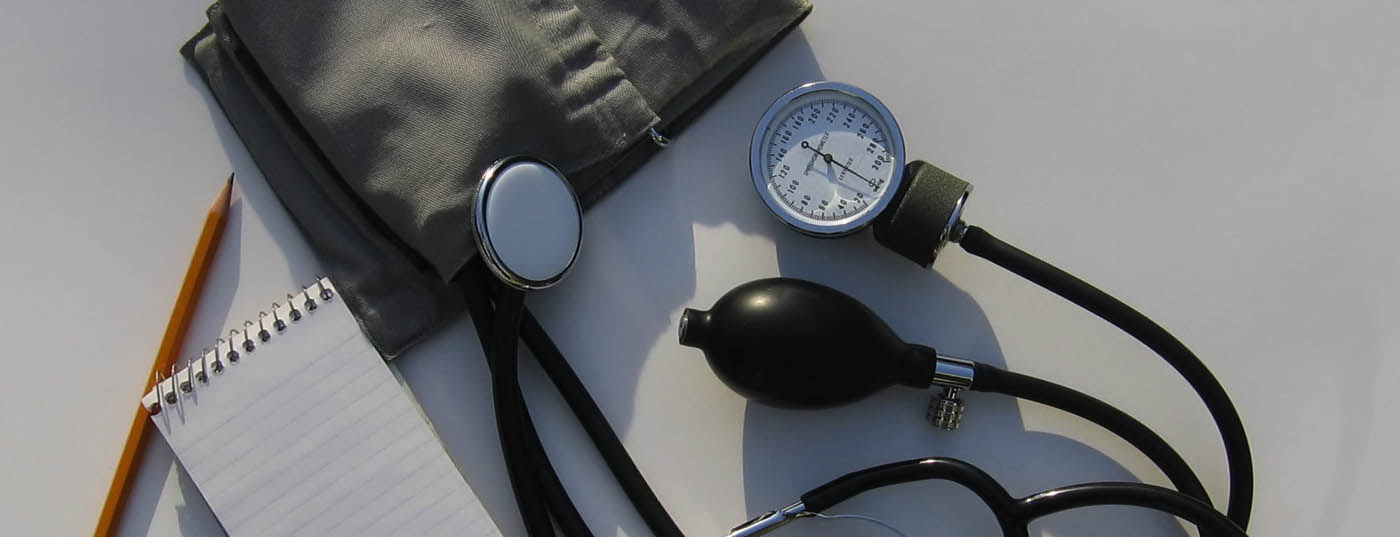About ten percent of treated hypertensives have high blood pressure that cannot be adequately controlled despite combinations of three or more antihypertensives. These patients may be helped by interrupting sympathetic nerve fibers on the renal arteries. This was pointed out at the European Diabetes Congress (EASD) in Berlin.
According to the definition, (therapy-)resistant hypertension exists when, despite lifestyle changes and combination therapy with at least three substances (including diuretics), there is no sufficient reduction in diastolic and systolic blood pressure (systolic <160 mmHg, in diabetics <150 mmHg) , explained Prof. Luis M. Ruilope, MD, Madrid. Risk factors for difficult-to-control hypertension include diabetes mellitus in addition to older age, high baseline levels, obesity, excessive salt intake, chronic kidney disease, and left ventricular hypertrophy.
Before certifying resistant hypertension, other causes should be ruled out, Prof. Ruilope said. These include white coat hypertension, poor compliance, use of hypertensive medications, and secondary hypertension. The rationale for renal denervation is the significantly increased activity of the sympathetic nervous system in hypertension, explained Prof. Michael Böhm, MD, Homburg/Saar. Permanently elevated sympathetic tone not only promotes hypertension, but is also involved in many end-organ damages.
Renal denervation with the radiofrequency catheter
That sympathectomy can “cure” hypertension was already shown by surgical approaches in the 1950s – but because of the high operative lethality, the method has been abandoned. Today, there is a much less invasive way to curb SNS activity. This method takes advantage of the fact that the sympathetic nerve fibers are located on the outer wall of the renal vessels. A radiofrequency catheter is inserted into the aa. renales is inserted, which is slowly pulled out while rotating and delivering high-frequency thermal energy. Cooling by the irrigation fluid and blood flow protect the vessel including the endothelium, and only the afferent and efferent sympathetic nerve fibers in the area of the adventitia are selectively destroyed. The procedure takes about four to six minutes per artery, for a total of one hour. About 40-50% of the sympathetic nerve fibers are destroyed during this procedure, Prof. Böhm reported.
Pressure reduction occurs slowly over months to years
After several pilot studies (including Symplicity HTN-1), the method was also tested over six months versus a control group in a cross-over design (Symplicity HTN-2). It was already clear during the follow-up of patients in the Symplicity-HTN-1 trial that the reduction in blood pressure was not a rapid effect [1]. Even after three years, there was still a further decrease and an increase in the response rate. This was confirmed in the Symplicity-HTN-2 study [2]. Even after renal denervation, however, patients remain dependent on antihypertensives, Prof. Böhm said.
The concern that blocking the sympathetic nervous system is associated with a reduction in physical resilience has not been confirmed. After the procedure, blood pressure and heart rate also increase with exertion, but somewhat less than before. Orthostasis also does not occur in clusters. As an additional positive effect, Prof. Böhm mentioned a decrease in left ventricular hypertrophy associated with the reduction in blood pressure.
Positive effects on glucose metabolism proven
Type 2 diabetics may particularly benefit from the method, as Felix Mahfoud, MD, Saarland, Germany, explained. They have clustered resistant hypertension with severe overactivation of the sympathetic nervous system. Both factors can increase insulin resistance. In a pilot study of 50 patients with resistant hypertension, not only was there a significant reduction in blood pressure after renal denervation, but fasting glucose, fasting insulin, and C-peptide were also reduced, and insulin sensitivity and glucose tolerance were improved [3]. It is currently still open how long these positive effects can be maintained and what impact this has on micro- and macrovascular endpoints.
Literature:
- Krum H, et al: Hypertension 2011; 57: 911-917.
- Symplicity HTN-2-Investigators: Lancet 2010; 376: 1903-1909.
- Mahfoud F, et al: Circulation 2011; 123(18): 1940-1946.
Source: EASD/ESC Symposium: Renal Denervation, EASD 2012, October 4, 2012, Berlin, Germany.











